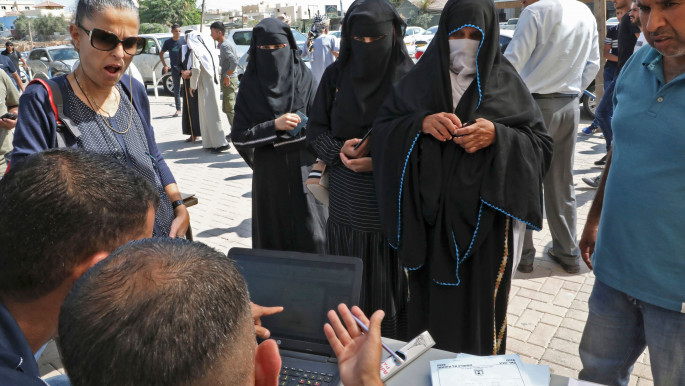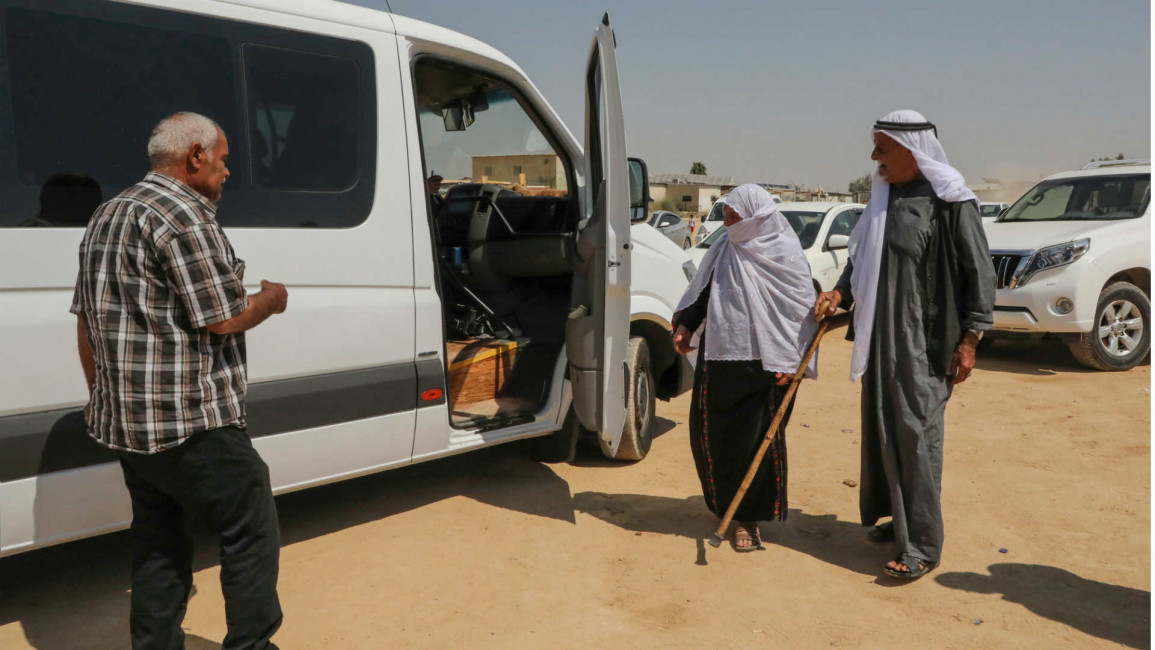NGO accused of breaking law after volunteers help isolated Bedouin reach Israeli polling stations
Volunteers drove Bedouin women in Israel's south to the polls on Tuesday morning so that they could cast their vote in the second general election of this year.
Israel's election committee had earlier ruled NGO Zazim's plan to transport Bedouin Arabs to vote in the country's elections illegal.
Zazim has denied any involvement in Tuesday's transportation of Bedouin voters to the polls.
But right-wing group Im Tirtzu has filed a petition aganst the NGO alleging that it was involved and had thus breached the committee's ruling, Haaretz reported.
Central Elections Committee chairman and Supreme Court Vice President Hanan Melcer, who issued the initial ruling on Sunday, has said that if Zazim was behind the transportation it had to cease all its activities.
Right-wing Im Tirtzu activists travelled to Bedouin villages on the morning of election day to document the volunteer activity, after which the group went to the Central Elections Committee.
"No one will steal the election from Israel's citizens again," said Im Tirtzu's lawyer, Ziv Maor.
Zazim hit back at the complaint, calling the situation "absurd".
"We found ourselves over the past few hours in an absurd situation in which we received a restraining order for something that didn't happen," the NGO said.
"We were excited to learn about dozens of private citizens who acted independently and in solidarity with the residents of the unrecognized villages," it added.
A volunteer that took part in the transportation effort told Haaretz that hundreds of Bedouin women were given rides to polling stations on Tuesday.
The closest polling station to one of the unrecognised villages, al-Garrah, is an hour away. One of the residents, Naif Batihat, said its residents are unable to locate their polling stations because the village is cut off from mail delivery.
 |
| Bedouins from the Negev register to cast their vote at a polling station in Shaqib al-Salam [AFP/Getty] |
He is one of the 250,000 Bedouins in Israel's Negev desert and belongs to the country's Arab minority, descendants of Palestinians who remained on their land after the creation of the country in 1948.
Altogether, they represent around 20 percent of Israel's nearly nine million citizens and denounce what they say is discrimination by the Jewish majority.
'Likud attempt to supress Arab votes'
Sunday's decision to bar Zazim from aiding isolated Bedouin voters came in response to a petition from Likud - the party of Israeli Prime Minister Benjamin Netanyahu - which alleged that the scheme sought "to topple the Likud party government and its leader" by "increasing the number of voters for the leftist bloc".
The election committee claimed that Zazim - a group that describes itself as a "campaigning community for social and political change" - was acting as an "active election body".
The ban falls under the "V15" law which limits the involvement of foreign-funded organisations in elections.
"Unfortunately, the Elections Committee is helping the Likud's efforts to suppress Arab citizens' votes," Zazim's Director-General, Raluca Ganea, was quoted by The Jerusalem Post as saying.
"The ruling is full of factual errors," she argued. "The ruling party's petition against a civil organisation with limited resources proved to be a lawsuit for censorship purposes."
The electoral body's decision has also been slammed by Arab lawmakers, who say as many as 50,000 voters will be prevented from casting their ballots.
In-depth: Israel, social stigmas, patriarchy and Palestine’s growing suicide epidemic
Joint List parliamentarian Aida Touma-Sliman said that without the transport, Bedouin in unrecognised "villages without public transportation or polling stations" will be prevented from voting.
"This kind of transportation should be provided by the state, but not when their votes could threaten the oppressive regime," she said.
Im Tirtzu, meanwhile, hailed the ruling as "a major victory for Israeli democracy."
The group, which worked with Likud in campaigning against the bussing plan, also accused Zazim of being among the groups and individuals who "seek to erase the Jewish and democratic character of Israel".
Follow us on Twitter: @The_NewArab



